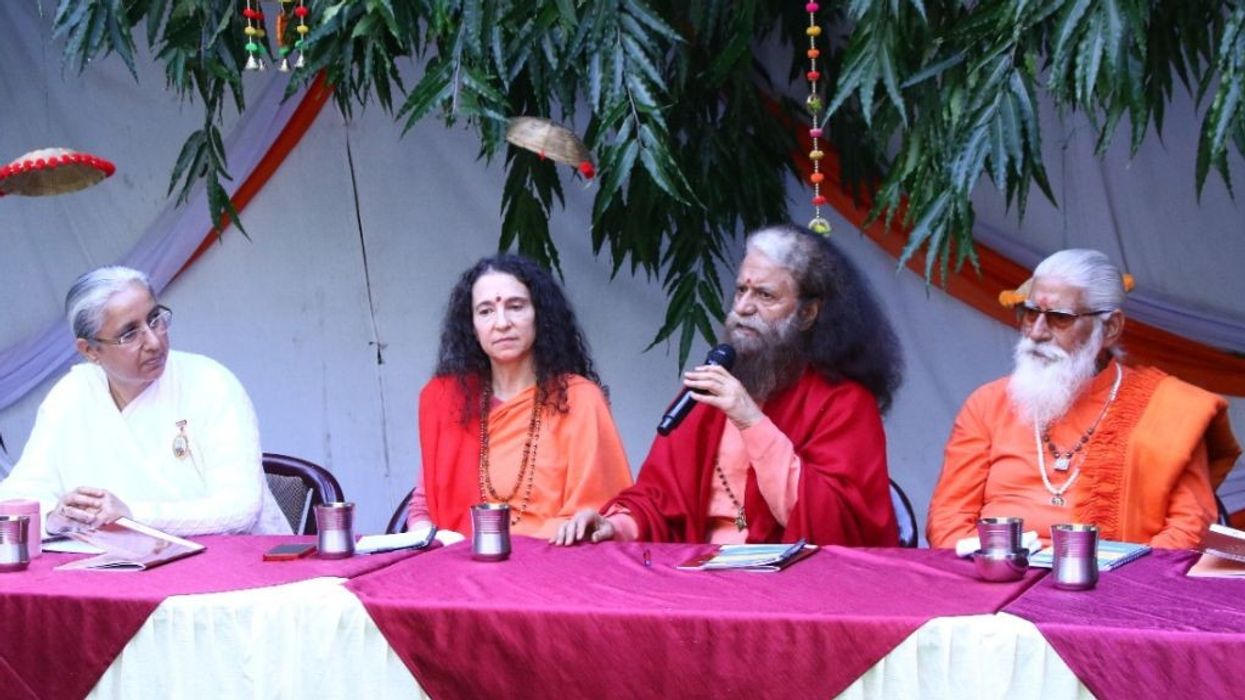On the occasion of World Human Rights Day on Saturday (10), the Global Interfaith WASH Alliance (GIWA) and Parmarth Niketan in Rishikesh in India's Himalayan state of Uttarakhand came together with faith leaders, scholars, academics, and artists from across the society to discuss how gender equality must go hand in hand with environmental preservation.
The dialogue, which took place at Parmarth Niketan's Satsang Garden, featured deliberation on how addressing challenges such as gender inequality, gender-based violence and related issues such as child marriage, are key to a sustainable, balanced, and healthy society.

Pujya Swami Chidanand Saraswati, president, Parmarth Niketan; Dr Sadhvi Bhagwati Saraswati, secretary general, GIWA; Goswami Sushil Ji Maharaj, national convener of All Religion Parliament of India; Sardar Paramjit Chandok, president, Delhi Gurudwara Bangla Sahib; Rajyogini BK Sapna Didi, director, Brahma Kumaris Delhi, were among the dignitaries who joined the talks alongside educationists and scholars and members of civil society organisations.
Eighty four percent of the world's population subscribe to a faith and in India, the number is even higher. Hence, faith leaders and faith-based organisations have a big role to play in behavioural change and changing societies' mindsets.
The dialogue of faith leaders included what are the key stereotypes and inequalities that women face and how they must lead real human rights and sustainable development goals.
It looked at scriptural references and stories that show examples of women empowerment and gender equality in the tradition of faith. It was also discussed that GIWA would soon be releasing a toolkit in Hindi and English for gender equality and another one for climate action.

“Gender Equality not just affects women and girls who represent half our population but really the entire society because it is this half that is responsible for the other half of the population…Religion and faith have an important and powerful role in removing this gap of gender inequality from society," Pujya Swami Chidanand Saraswati said.
"Both men and women are the basic pillars of the society, yet in many places women still are discriminated, oppressed and subject to violence. Gender equality is key to unity and as our Hon’ble Prime Minister Shri Narendra Modiji has declared from the ramparts of Red Fort on 15th August that Nari Shakti is pivotal in the Amrit Kaal of Bharat.”
Pujya Sadhvi Bhagawatiji said, "It is such a beautiful beginning and there is so much work to be done. In our scriptures and in the Indian culture Nari, Shakti is the same divine feminine that is represented in the form of women and girls and it’s the same energy represented in the form of Mother Earth or Prakriti and the same energy that is referred to as Sanskriti or our spiritual cultural heritage. Hence as faith leaders we must come together for Shakti, Prakriti and Sanskriti and when we do so then we take care of the core of all human rights as well as all living rights.”
Women constitute almost half of the world's population, and for this reason, the widespread and far-reaching effects of gender discrimination are visible at every level of the society. Therefore, it is necessary that by bringing all religions and religious organisations on one platform, various social evils can be terminated.
Other noted participants included, among others, Geeta Kathpalia Ahuja ji of Akhil Dharma Sansad Bharat; Triveni Acharya, founder of Rescue Foundation; Dr. Kanchan Chandan, professor of Gender Studies from Punjab University; Mahesh Prasad Jaiswal, screenwriter and scholar; Ganga Nandini, director of GIWA; Jaspreet Kaur, secretary, Gurudwara Bangla Sahib.




